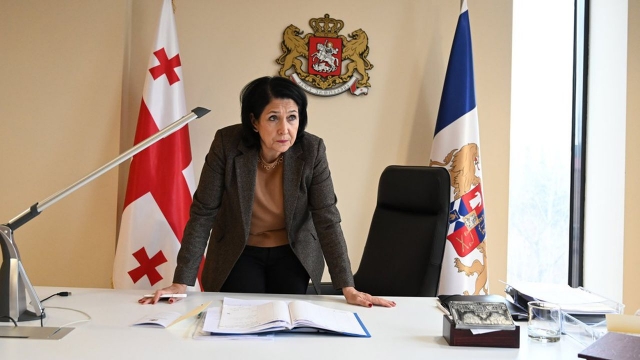Les Echos: Georgia in the EU: and Why Not?
French financial newspaper Les Echos has published an article, titled "Georgia in the EU: and why not?" written by economist Sébastien Cochard.
"While the European Union has just lost one of its members to the West, another country, to the East of Europe this time, hastened to emphasize that it would replace the United Kingdom in Brussels: Georgia. This is essentially what Salomé Zurabishvili, current President of Georgia and a former French diplomat, said," reads the article.
The author of the publication notes that some may meet this proposal with a smile and look at "Small Georgia" with pride, however, "this would be a mistake for many reasons."
"The first reason is that in these tragic days of the pandemic, when the EU is still facing a migration crisis that has caused great damage to the EU, it is clear for everyone that part of our lives is determined by events on our borders. Georgia turned out to be what Russia calls "the nearest foreign country" for the EU. Therefore, what is happening in Georgia concerns us and we should be interested in it,” he writes.
"On the one hand, Georgia is a bridge between Europe, Russia and the Middle East, and on the other hand, the political and economic situation in Georgia is improving," reads the publication.
"Georgia is committed to democracy. Last month, the government announced a major reform of the country's electoral system. Thus, the government fulfilled the main promise of the Georgian Dream. Agreement on electoral reform was achieved through multilateral negotiations with opposition parties, mediated by the European Union and the United States. Proportional representation in the Parliament of Georgia will increase and Georgians will vote with about the same system as Europeans," it further notes.
The article also emphasizes that the vast majority of the Georgian population strongly supports interation with the European Union. The author notes that Georgia has signed an association agreement with the EU, which includes a free trade agreement. Georgia is also the chair of the Council of Europe.
"Along with political stability in Georgia, the economy is also growing significantly, which is crucial, especially if we remember that the European Union is first and foremost a common market. For example, the World Bank highlighted the significant improvement of the country's economic and social system during the 25th anniversary of its cooperation with Georgia. Poverty reduction is particularly noteworthy. This figure was 32.5% in 2006 and 16.3% in 2017, ” the author writes.
The author also said that "during the reign of the previous Georgian government, the 2008 Russia-Georgia war reminded Europe that it is necessary for the protection of the security and prosperity of the European Union to pursue a prudent and active policy outside the EU."
"Does this mean the enlargement of the European Union and Georgia's membership in the long run? The challenge is great and largely depends on the Georgians. However, it is in the interests of the European Union and France to constantly keep an eye on a politically stable country with a dynamic economy and a pro-Western government and population located on the European border," the author concludes.
By Ana Dumbadze
Source: lesechos.fr
Read the full article here
Author: Sébastien Cochard
Image: Elodie Gregoire/REA












